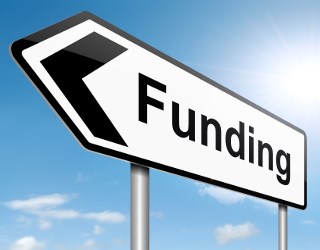 Consulting
Terminal Evaluation of the Transitional Justice & Human Rights Project
Consulting
Terminal Evaluation of the Transitional Justice & Human Rights Project
Terminal Evaluation of the Transitional Justice & Human Rights Project
Terminal Evaluation of the Transitional Justice & Human Rights Project has been closed on 23 Jun 2021. It no longer accepts any bids. For further information, you can contact the United Nations Development Programme
Bellow, you can find more information about this project:
Location: Gambia
General information
United Nations Development Programme
Consulting
Closed
Timeline
02 Jun 2021
23 Jun 2021
Not available
Contacts
Description
| Terminal Evaluation of the Transitional Justice & Human Rights Project | ||
|---|---|---|
| Procurement Process : | RFP - Request for proposal | |
| Office : | Gambia - GAMBIA | |
| Deadline : | 23-Jun-21 | |
| Posted on : | 02-Jun-21 | |
| Development Area : | CONSULTANTS | |
| Reference Number : | 79161 | |
|
Link to Atlas Projects : 00025456 - COMMUNITY BASED RELIEF FOR VULNERABLE WOMEN 00057319 - MDGs- Based Poverty Reduction and Growth Strategy Implem | ||
|
Documents :
TOR RFP | ||
| Overview : Former President of The Gambia, Yahya Jammeh, went into exile on 21 January 2017, leaving behind a legacy of human rights abuses, near empty coffers, and an institutional vacuum. He ruled for 22 years with an iron fist and little regard for democratic and human rights principles. Scores of political figures, journalists, civil society activists and students were harassed, detained, tortured, murdered, made to disappear, or forced into exile during his regime. Freedom of expression, association and assembly were severely restricted, several critical media houses were shut down and justice institutions were systematically manipulated to preserve his power. Following the tension-filled but peaceful transfer of power from former President Jammeh to President Adama Barrow on 21 January 2017, an urgent need arose in The Gambia for reforms that promote democratic governance, respect for the rule of law and human rights, socio-economic recovery, sustainable development, and peace. In February 2017, during a UN Inter-Agency Mission to The Gambia, the Government highlighted several, key reform priorities in the security sector, including, setting up a transitional justice mechanism, ensuring the respect of human rights and restoring confidence to the judiciary and law enforcement institutions. Three months later, the Government of The Gambia approved Project no. 00105687 “Support the capacity of the Government and national stakeholders to establish credible transitional justice processes and mechanisms that promote reconciliation and sustainable peace in The Gambia” (TJHR Project), DocuSign Envelope ID: 9CDCB7D2-C700-4B1E-B313-9DE3DBFD1A5Bwith funding from the UN Peacebuilding Fund (PBF), and UNDP and OHCHR as implementing agencies. The TJHR Project aims to support The Gambia in its effort to deal with legacies of past human rights violations and abuses, and to help the delivery of truth, justice, and healing for victims and communities. It is the Project’s theory of change that if the legacy of past human rights violations and abuses is addressed in a comprehensive, inclusive, principled, rights-based, victim-centered manner, then the healing of past grievances will be promoted, and the Gambian population can build new confidence and trust in State institutions. In this regard, key project partners include the Ministry of Justice, the National Assembly, the Truth, Reconciliation and Reparations Commission (TRRC), the National Human Rights Commission (NHRC) and civil society organizations (including Women in Leadership and Liberation (WILL), African Network against Extrajudicial Killings and Enforced Disappearances (ANEKED), Transitional Justice Working Group (TJWG), The Girl’s Agenda, Nova Scotia Gambia, AIDS Free World and International Centre for Transitional Justice (ICTJ). II. PROJECT DESCRIPTION AND MANAGEMENT The first phase of the Project supported the Government in developing a comprehensive and inclusive strategy for accountability for past abuses, in setting up the Truth, Reconciliation and Reparations Commission (TRRC), which is mandated to foster healing and national reconciliation. During this phase, the Project also focused on strengthening the human rights institutional framework in The Gambia, including establishing a National Human Rights Commission (NHRC), a National Mechanism for Reporting and Follow-up (NMRF) and a National Assembly Select Committee on Human Rights and Constitutional Matters. The second phase of the Project has provided catalytic support in the form of institutional and technical capacity-building to operationalize the key institutions established to help the country begin to build a strong culture of respect for human rights in The Gambia, as well as dedicated support to TRRC victims and other marginalized groups such as women and children to fully participate in the TRRC process. The Project is managed by a Project Management Unit (TJHR-PMU), comprised of both UNDP and OHCHR staff, housed at the UN Projects Office in Kololi, The Gambia. OHCHR has the overall responsibility of quality control regarding the technical aspects of the Project, whilst UNDP retains responsibility for quality control over project management aspects. Phase 1 of the Project commenced on 17 May 2017 and completed on 31 October 2018. Phase 2 commenced on 1 November 2018, and was due to close on 31 October 2020, but was subsequently extended for 7 months to finally conclude on 30 June 2021. The total Project duration is thus 49 months with a total budget of $4,699,999. Although the TJHR-PMU has been based in Kololi, project activities have been implemented throughout the country in partnership with the TRRC and the NHRC. The TRRC, has held several community dialogues on reconciliation, as well as dialogues aimed at capturing women’s knowledge and perceptions about the TRRC. Three regional, public hearings were also held in Jambur, Sibanor and Essau, on the topic of state sanctions witch-hunts in 2009. The TJHR Project includes 15 outputs spread across 5 outcome areas, namely: a) development of a national strategy on transitional justice, b) provision of basic, essential capacity and knowledge on transitional justice to key state institutions and civil society organisations, c) operationalization of the Truth, Reconciliation and Reparations Commission, DocuSign Envelope ID: 9CDCB7D2-C700-4B1E-B313-9DE3DBFD1A5BUnited Nations Development Programme d) increased proactivity of civil society, particularly victims associations, in transitional justice, and e) enhanced respect for human rights. The Project Document also includes a sixth outcome area on instituting a Secretariat for coordination and quality assurance of all PBF projects in The Gambia, but this outcome area was included in the TJHR Project out of administrative convenience - the TJHR Project being the first PBF funded project in The Gambia and therefore, being the most suitable at the time to house a mini-PBF Secretariat in The Gambia. This outcome is not included in the scope of this evaluation. The TJHR Project’s Governing Board and Technical Committee, both chaired by the Ministry of Justice, oversee the management of the Project, and advise on technical matters, respectively. The TJHR PMU also works in collaboration with a wide range of domestic and international actors and organizations on transitional justice (including, but not limited to, the International Centre for Transitional Justice (ICTJ), Human Rights Watch (HRW), Justice Rapid Response (JRR), Search for Common Ground, Institute for Integrated Transitions (IFIT) and IDEA International) in the implementation of its activities and in support of the Truth, Reconciliation and Reparations Commission (TRRC), the National Human Rights Commission (NHRC), other state institutions and civil society organizations (CSOs) promoting the national transitional justice and human rights agenda. Submit Technical and Financial Proposals to:[email protected] Email subject: Terminal Evaluation TJ & HR | ||
Receive Daily Tenders and Grants notifications
Subscribe nowFeatured tenders
-
 Tender
04 Feb 2022
Gambia
Technical Assessment of Community Gardens
United Nations Development Programme
Tender
04 Feb 2022
Gambia
Technical Assessment of Community Gardens
United Nations Development Programme
-
 Tender
26 Aug 2021
Gambia
National Consultant for Supervision of Electrical Works at the UN House
United Nations Development Programme
Tender
26 Aug 2021
Gambia
National Consultant for Supervision of Electrical Works at the UN House
United Nations Development Programme
-
, Asia Pacific Economic Cooperation, African Union, Central Bank of West African States - (APEC)03 copy.jpg) Tender
17 Jun 2021
Gambia
Re-advertisement. National Consultancy firm/company for Development of a proposal for the UN COVID-19 Response and Recovery Multi-Partner Trust Fund
United Nations Development Programme
Tender
17 Jun 2021
Gambia
Re-advertisement. National Consultancy firm/company for Development of a proposal for the UN COVID-19 Response and Recovery Multi-Partner Trust Fund
United Nations Development Programme
-
 Tender
09 Sep 2021
Gambia
Graphic Design Consultant
United Nations Development Programme
Tender
09 Sep 2021
Gambia
Graphic Design Consultant
United Nations Development Programme
-
 Tender
07 Jun 2021
Gambia
IC for Capacity Building of Civil Society Organizations on Social Accountability, strategic communication, participatory monitoring, and evaluation.
United Nations Development Programme
Tender
07 Jun 2021
Gambia
IC for Capacity Building of Civil Society Organizations on Social Accountability, strategic communication, participatory monitoring, and evaluation.
United Nations Development Programme
Get free access to our Tenders & Grants Database
Our service is free of charge and will always be
Join NowDonors
-
 ASIA-PACIFIC ECONOMIC COOPERATION
ASIA-PACIFIC ECONOMIC COOPERATION
-
 CARIBBEAN DEVELOPMENT BANK
CARIBBEAN DEVELOPMENT BANK
-
 COUNCIL OF EUROPE DEVELOPMENT BANK
COUNCIL OF EUROPE DEVELOPMENT BANK
-
 COMMONWEALTH SECRETARIAT
COMMONWEALTH SECRETARIAT
-
 EUROPEAN TRAINING FOUNDATION
EUROPEAN TRAINING FOUNDATION
-
 DEUTSCHE GESELLSCHAFT FUR INTERNATIONALE ZUSAMMENARBEIT
DEUTSCHE GESELLSCHAFT FUR INTERNATIONALE ZUSAMMENARBEIT
-
 NON-GOVERNMENTAL ORGANIZATION
NON-GOVERNMENTAL ORGANIZATION
-
 NATIONAL HIGHWAY AUTHORITY
NATIONAL HIGHWAY AUTHORITY
-
 UNITED NATIONS PROGRAMME ON HIV/AIDS
UNITED NATIONS PROGRAMME ON HIV/AIDS
-
 UNITED STATES AGENCY FOR INTERNATIONAL DEVELOPMENT
UNITED STATES AGENCY FOR INTERNATIONAL DEVELOPMENT